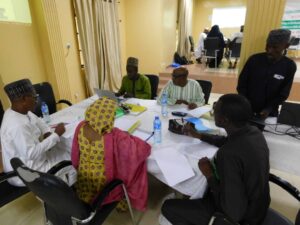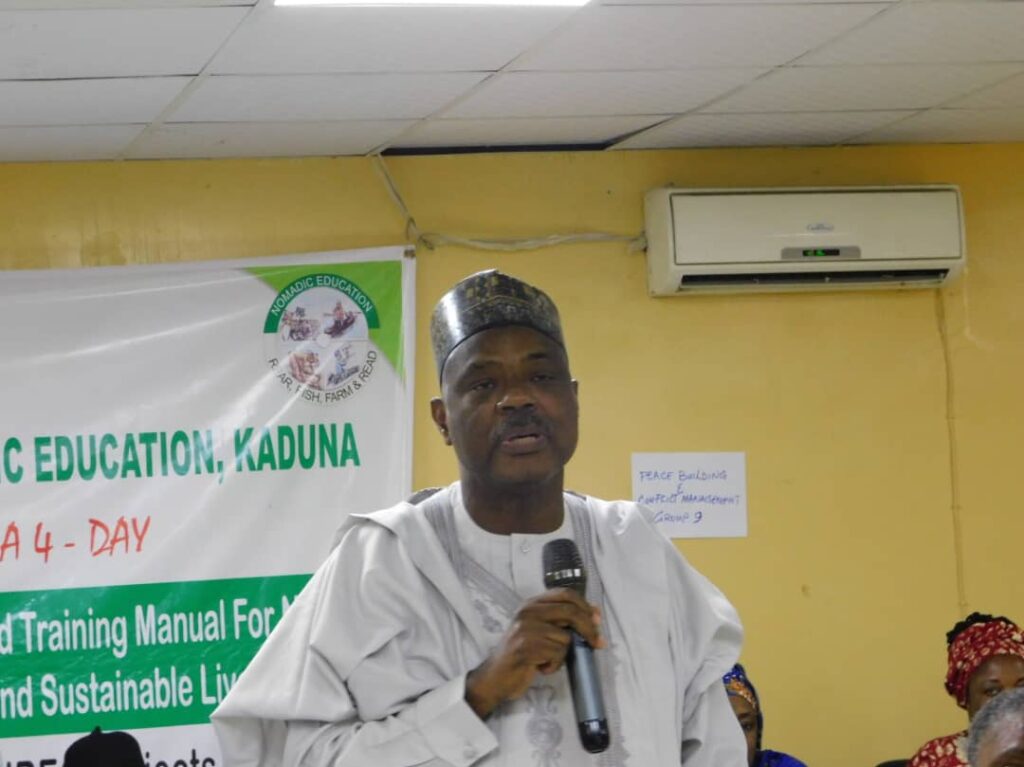Umar Idris Shuaibu – Kano
The National Commission for Nomadic Education (NCNE), commenced a four-day critique workshop on the developed training manuals on skills acquisition and sustainable livelihood for nomadic youth and women.
Speaking at the opening ceremony of the workshop in Kano, the Executive Secretary of NCNE, Professor Bashir Haruna Usman, said the essence of the workshop is to equip the nomadic youth with the relevant knowledge as a value addition to their traditional professions of rearing, farming, and fishing.
“At this point of critiquing, we want to train the nomadic youth on demand-driven skills which include Cattle and dairy production and processing, Sheep and Goats production, Fashion Design (tailoring), Cosmetology, Information and Communication Technology, Beekeeping and Honey Processing, Fish Farming, Entrepreneurship Skills Development & Peace Building and Conflict Management.
We aim to reduce the poverty level of many nomads and reduce the restiveness of social vices such as cattle rustling, kidnapping, raping, rural banditry, and piracy that are leading to the wanton destruction of lives and properties.
These skills that the Nomadic Commission is planning to train nomad youth will serve as an avenue to feed themselves, send children to school, assist others with employment, and even invest the rest of the income for the future. Because the skill one learns can assist him till the end of his life.
Read Also:
FCAPT Trains Stakeholders on Utilization of Orange Fleshed Sweet Potato
I’m optimist that the various skills provided in the training manuals to be critiqued will provide the intended trainees with artistic, manipulative, life coping, lifelong communicative skills empowerment skills, intellectual empowerment skills, as well as problem-solving, will help in poverty eradication, good education standard, crime reduction and degenerate to national growth through the wealth creation of the various skills”, Professor Bashir Haruna Usman.
Speaking earlier, the Director of Planning, Research and Statistics of NCNE, Dr. Rose Nwaji urged the resource persons in the workshop to work extra hard to come up with a standard manual that will help the Commission achieve the target.
Nwaji said the intention was borne out of the desire of NCNE to introduce the nomads into the national life and give out their contribution to the national growth.
“Our nomads are left behind because they are living in the hard-to-reach areas due to the security situation and terrain, but with our available means and manpower we can be able to sail the training ideas to them for the betterment of their lives”, Rose Nwaji.

In his remarks, resource person and former Director of the National Board for Technical Education (NBTE), Malam Musa Muhammad Isgogo advised the Commission to consider qualifying the trainees with relevant certifications.
Muhammad Isgogo said certification after learning the required skills will go a long way in encouraging the nomads to compete with others in the formal arrangement.
In his comments, the Director of Extension Education and Skills Development of the National Commission for Nomadic Education, Dr. Abdu Umar Ardo said the initiative will improve the living standard of nomads.
“The more we empower them, the more our problems will be solved, the Commission knows the untapped skills of the nomadic people which will help in developing our dear country.
Abdu Umar Ardo assured the Commission the manuals when put into practice will engage nomadic youth into productive employment and make them excel.
As the National Commission for Nomadic Education (NCNE) clocks 35 years of existence, the report indicates the increase in literacy level of nomads from 00.2% to 18% and has achieved in constructing 768 blocks of classrooms with over 2 million graduates across the country.
Its mandate covers educating pastoralists which are majorly Fulani, children, migrant fishermen, and farmers in the country.
